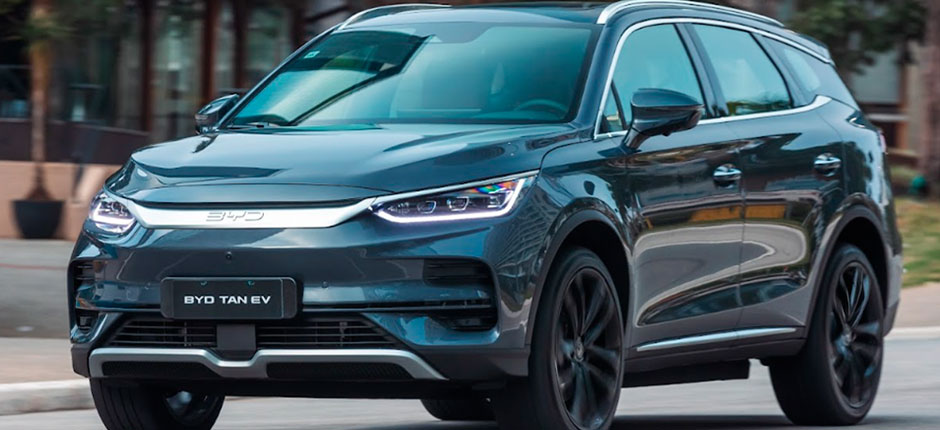In recent years, Brazil has emerged as a pivotal player in the electric vehicle (EV) market, particularly within the realm of emerging economies. As of 2023, the South American giant has made significant strides in adopting electric mobility, becoming a beacon of innovation and sustainable practices. According to Electrek, Brazil saw a 43% increase in EV sales in the first half of 2023 alone, showcasing its commitment to reducing carbon emissions and embracing new technologies. In this article, we will explore how Brazil is spearheading the EV movement in emerging markets, the challenges it faces, and what this means for the future of global mobility.
Brazil’s Electrifying Growth in the EV Market
Government Policies Driving Change
Brazil’s rapid advancement in the electric vehicle sector is largely attributed to progressive government policies. In late 2022, the Brazilian government announced a tax incentive program aimed at reducing the cost of EVs for consumers, as reported by Reuters Mobility. This initiative has been pivotal in boosting sales and encouraging both local and international manufacturers to invest in the nation.
- Incentives: Reduction of import duties on electric vehicles and components.
- Infrastructure Development: Investment in charging stations across major cities.
- Research Grants: Funding local research and development for battery technology.
The Shift in Consumer Preferences
Brazilian consumers are increasingly prioritizing sustainability in their purchasing decisions. According to a survey by CleanTechnica, 57% of Brazilian car buyers in 2023 considered environmental impact as a significant factor in their choice of vehicle. This shift is indicative of a broader trend towards eco-conscious living, influenced by rising awareness of climate change and its impacts.
- Eco-Friendly Options: Growing demand for hybrid and fully electric models.
- Brand Loyalty: Preference for brands with clear sustainability commitments, such as BYD and Hyundai.
Challenges and Opportunities in Brazil’s EV Ecosystem
Infrastructure Hurdles
While the growth trajectory is promising, Brazil faces several challenges in its EV infrastructure. According to Bloomberg Green, the country currently has approximately 1,500 public charging stations, a number that is insufficient to meet the rising demand.
- Urban vs. Rural: Charging facilities are predominantly urban, leaving rural areas underserved.
- Grid Capacity: The existing power grid requires upgrades to support the increased load from EVs.
Opportunities for Innovation
Despite these challenges, Brazil presents a fertile ground for innovation in the EV space. Local startups are pioneering solutions to address these infrastructure gaps, often with unique approaches tailored to Brazil’s specific needs.
- Solar-Powered Charging: Companies like Sunew are developing solar-powered charging stations to increase accessibility and sustainability.
- Battery Technology: Partnerships with international firms to enhance battery life and efficiency, as seen with collaborations between Brazilian tech firms and Battery University.
Practical Guide to Embracing EVs in Brazil
How to Charge Your EV
Charging an electric vehicle in Brazil can be straightforward, especially in urban centers where infrastructure is more developed.
- Public Charging Stations: Use apps like “PlugShare” to find nearby stations.
- Home Charging: Install a Level 2 charger at home for faster charging times.
- Workplace Charging: Many companies offer charging facilities for employees, an initiative supported by government incentives.
Where to Buy Electric Vehicles
Brazil offers a variety of options for purchasing electric vehicles, from local dealerships to direct online sales.
- Dealerships: Brands like Nissan, Volkswagen, and Ford EV have a strong presence in Brazil.
- Online Platforms: Websites like WebMotors provide a comprehensive list of available EV models.
What to Compare When Buying
When considering an electric vehicle, several factors should be evaluated to ensure it meets your needs:
- Range: Assess the vehicle’s battery range to match your daily travel requirements.
- Charging Time: Consider how quickly the vehicle can be charged.
- Cost of Ownership: Factor in maintenance costs, which are typically lower for EVs.
Conclusion: Brazil’s Pioneering Role in the EV Transition
In conclusion, Brazil is at the forefront of the electric vehicle revolution in emerging markets, demonstrating how effective policies, consumer shifts, and innovation can drive sustainable change. As infrastructure develops and technology advances, Brazil is poised to not only meet its domestic demand but also influence global trends in electric mobility.
For those considering an electric vehicle, Brazil offers a promising environment, ripe with opportunities for growth and innovation. As we look to the future, one question remains: How will Brazil continue to adapt and lead in the global shift towards sustainable transportation? The answer lies in its ongoing commitment to innovation, policy support, and consumer engagement—an inspiring model for other emerging markets to follow.
Let’s stay tuned to see how Brazil’s journey unfolds, and perhaps, take a leaf out of their book as we collectively steer towards a greener future.

